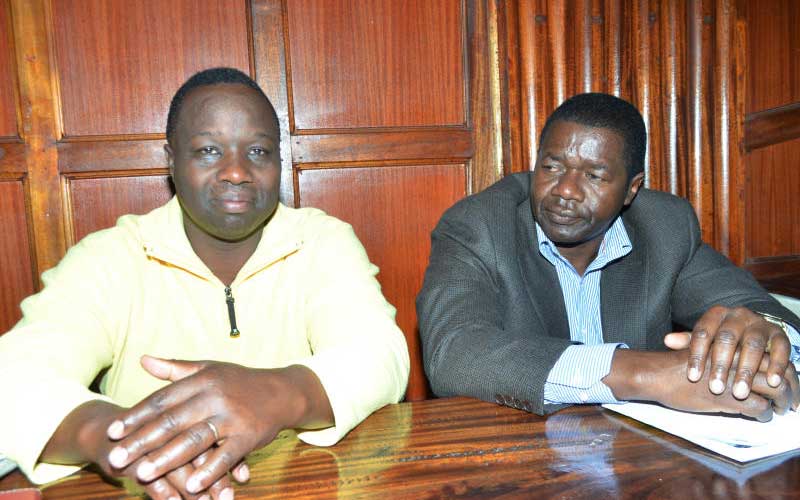×
The Standard e-Paper
Home To Bold Columnists

Former electoral commission boss CEO James Oswago (right) and Support Services Secretary Wilson Kiprotich at past court hearing. [File, Standard]
Former Independent Electoral and Boundaries Commission (IEBC) CEO James Oswago has a case to answer in connection to the Sh1.3 billion voter identification devices tender scandal in 2013.